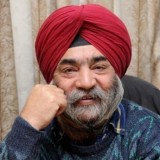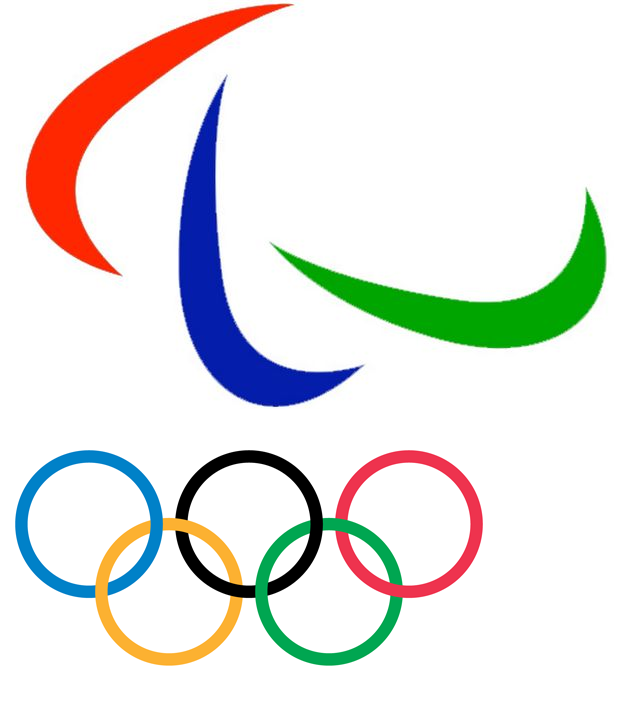
Gallant attempts by the world of sports to wriggle out of the devastating impact of the Omicron pandemic may be severely hit by the Russia-Ukraine military conflict that threatens to divide the world again. Unfortunately, the timing of the Russian invasion of Ukraine coincides with the holding of a major International Olympic Committee event, the Paralympic Games, scheduled to start in Beijing on March 4. Twice before the Olympic movement had been hit hard by World War II. The 1940 and 1944 editions of the Olympic Games had to be cancelled during the global hostilities at that time.
Led by the United States, the NATO nations, in expression of their complete solidarity with Ukraine, have already heaped a series of sanctions on Russia in their valiant attempt to force cessation of hostilities.
It was for almost similar reasons that the 1980 Moscow Olympic Games were boycotted by a group led by the NATO leader, the United States. The boycotters had objected to the presence of the then Soviet Union forces in Afghanistan.
Interestingly, the Beijing Winter Olympic Games 2022, that witnessed a diplomatic boycott by most of the NATO nations, including the US and Canada, had the Russian President, V. Putin, as a guest of honor
Other than NATO, it is the International Olympic Committee (IOC) that has come hard on both Russia and its aide Byelorussia by urging all International Sports Federations (ISFs) to relocate or cancel their sports events currently planned in Russia or Belarus. The ISFs should take the breach of the Olympic Truce by the Russian and Belarussian governments into account and give the safety and security of the athletes absolute priority. The IOC itself has no events planned in Russia or Belarus.
The IOC Executive Board also wants that no Russian or Byelorussian national flag be displayed and no Russian or Byelorussian anthem be played in international sports events that are not already part of the respective World Anti-Doping Agency (WADA) sanctions for Russia. In the just concluded Beijing Winter Olympic Games, it was the Russian Olympic Committee (ROC) and not Russia that was allowed to send its contingent. Neither any Russian flag was flown, nor the Russian national anthem was played during the Games though the ROC athletes were placed at number two in the overall medals (32) tally with six gold. 12 silver and 14 bronze medals. Norway topped the tally with 37 medals, including 16 gold. Eight silver and 13 bronze medals while Germany took the third spot with 27 medals and Canada finished fourth with a tally of 24. Incidentally, Norway, Germany and Canada are now on the other side opposing the Russian action in Ukraine.
Though the IOC Executive Board has expressed its full support to the International Paralympic Committee (IPC) for the upcoming Paralympic Winter Games in Beijing from March 4, the shadow of the Russian action may impact the games in a big way.
Immediately after Russia launched its military operations, the International Olympic Committee (IOC) came out with a strong condemnation of the breach of the Olympic Truce by the Russian government by referring to the December 2, 2021 resolution of the UN General Assembly adopted by consensus of all 193 UN Member States. The Olympic Truce began seven days before the start of the Olympic Games, on February 4, 2022, and ends seven days after the closing of the Paralympic Games.
Earlier in a similar resolution passed by the General Assembly of the United Nations on 9 December 9, 2019, it was decided to include in the provisional agenda of its seventy-sixth session the sub-item entitled “Building a peaceful and better world through sport and the Olympic ideal” and also recalling its prior decision to consider the sub-item every two years, in advance of the Summer and Winter Olympic Games. The Olympic Truce was first taken up by the UN General Assembly on October 25, 1993, which, inter alia, revived the ancient Greek tradition of ekecheiria (“Olympic Truce”) calling for a truce during the Olympic Games to encourage a peaceful environment and ensure safe passage, access and participation for athletes and relevant persons at the Games, thereby mobilizing the youth of the world to the cause of peace.
The core concept of ekecheiria, historically, has been the cessation of hostilities from seven days before until seven days after the Olympic Games, which, according to the legendary oracle of Delphi, was to replace the cycle of conflict with a friendly athletic competition every four years. Other than the Paralympic Olympic Games starting in Beijing on March 4, where winter para athletes of both Russia and Ukraine are scheduled to participate, the first test for any International Sports Federation under the new IOC directive is for field hockey (International Hockey Federation – FIH).
An elite FIH event – Junior Women World Cup – will be organized at Potchefstroom in South Africa from April 1 where both Russia and Ukraine are among 16 nations confirmed to participate. Going by the hostilities back home, participation of both Russia and Ukraine in the Potchefstroom event looks doubtful, both the South African Hockey Federation and the FIH have a problem on hand.
The tournament had already been postponed once. The list of participants, too, has witnessed changes. For example, Japan had withdrawn at the last minute. It was replaced by Malaysia. Now the sword of uncertainty is hanging over the Potchefstroom event again following the Russia-Ukraine war.
(Prabhjot Singh is a veteran journalist with over three decades of experience covering a wide spectrum of subjects and stories. He has covered Punjab and Sikh affairs for more than three decades besides covering seven Olympics and several major sporting events and hosting TV shows. For more in-depth analysis please visit probingeye.com or follow him on Twitter.com/probingeye. He can be reached at prabhjot416@gmail.com)
